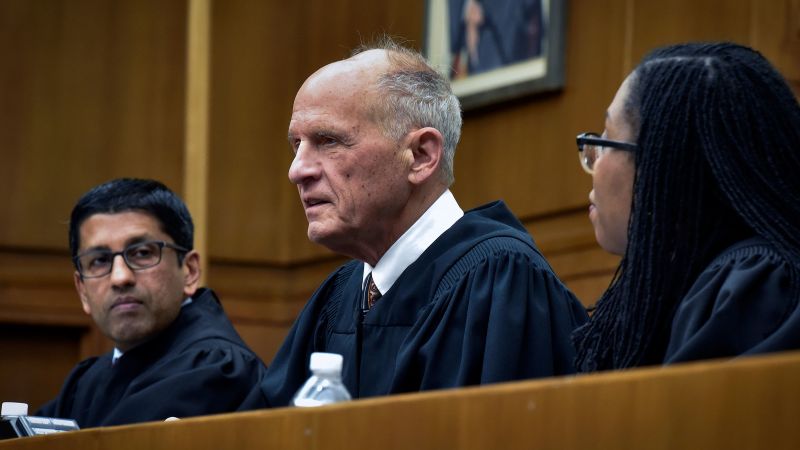In his candid memoir, retired US Appeals Court Judge David Tatel expresses his disappointment in the current Supreme Court and Chief Justice John Roberts for their actions, particularly in matters related to race and civil rights. Tatel criticizes the court for overturning voting rights protections, which he views as a core aspect of America’s civil rights revolution. He also shares insights from private conversations with the late Justice Ruth Bader Ginsburg, highlighting her struggles with public pressure to resign during a Democratic presidency.
Tatel suggests that Ginsburg’s death and subsequent replacement with Amy Coney Barrett had a significant impact on key decisions, such as the 2022 ruling that overturned abortion rights established in Roe v. Wade. He believes that if Ginsburg had lived or retired during Obama’s presidency, a like-minded justice would have prevented these changes. Tatel’s book, “Vision: A Memoir of Blindness and Justice,” delves into his legal career and acceptance of his blindness, while also addressing his concerns about the Supreme Court’s actions and their implications for democracy.
Rooted in the civil rights era of the 1960s and ’70s, Tatel’s ideology guides his critique of the current Supreme Court under Roberts’ leadership. He reflects on key decisions that have shunned racial diversity and remedial measures, particularly in the context of the Voting Rights Act and school integration plans. Tatel contrasts his own journey toward acceptance of blindness with his growing despair at the direction of the Supreme Court, which he perceives as dismissing important principles of judicial restraint.
Tatel sheds light on behind-the-scenes interactions in Supreme Court cases related to the Voting Rights Act, recounting how liberal justices worked out compromises with the majority to avoid declaring certain provisions unconstitutional. He laments that Congress failed to act on these compromises, leading to future decisions that undermined key aspects of the VRA and civil rights protections. Ginsburg’s interactions with Tatel over key cases during his tenure on the DC Circuit also provide insights into her dedication to upholding key principles amidst challenging circumstances.
Despite his reluctance, Tatel ultimately decided to retire after President Joe Biden took office, citing his frustration with the Supreme Court’s disregard for the principles he has dedicated his life to. He expresses concern about the court’s trajectory under the current leadership and the potential implications for democracy and the rule of law. Through his memoir, Tatel offers a unique perspective on the inner workings of the judiciary, the challenges faced by individuals with disabilities, and the broader implications of judicial decisions on civil rights and democracy.


